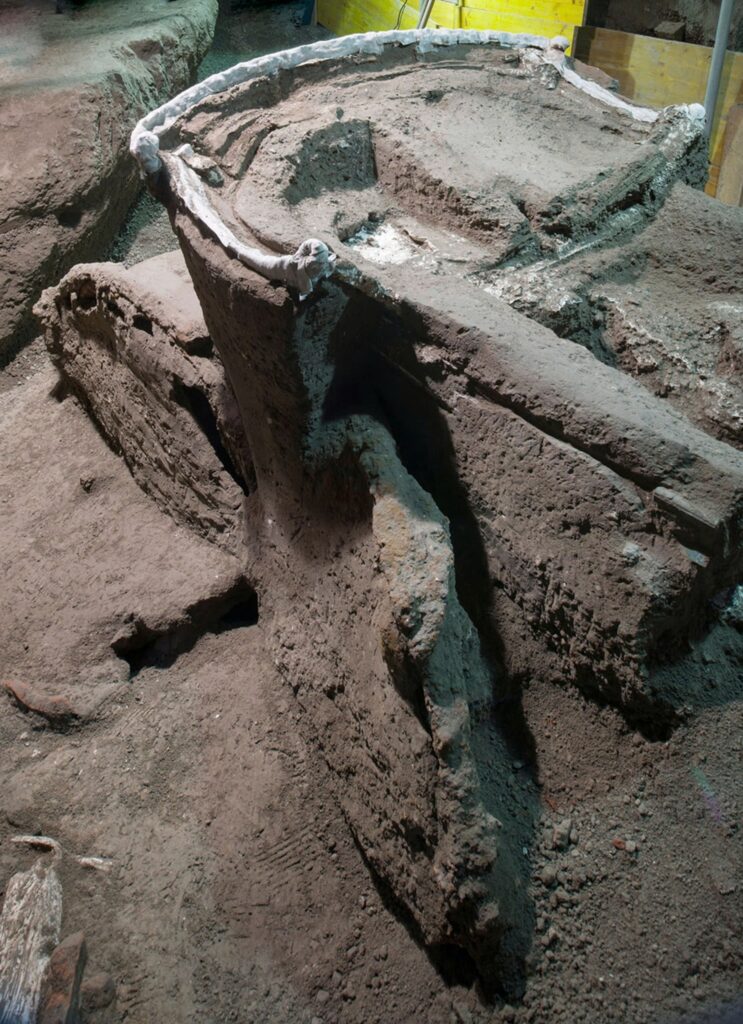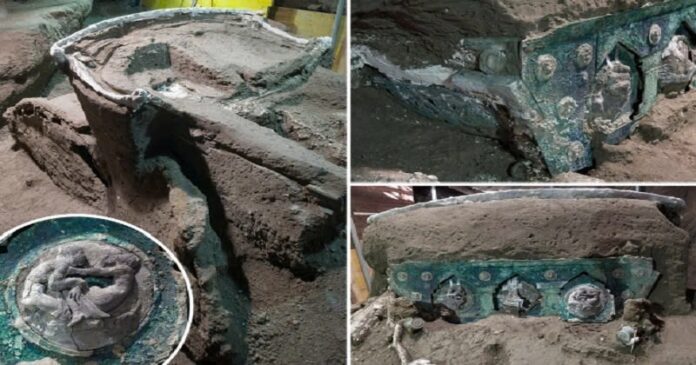A Remarkable Find in the Ashes of Time

In a stunning archaeological breakthrough, a nearly intact ancient Roman chariot has been unearthed near Pompeii, Italy. This extraordinary discovery, described as “unparalleled” by the Archaeological Park, offers a fascinating glimpse into the opulent lifestyle of the Roman elite before the catastrophic eruption of Mount Vesuvius in 79 AD.
The Chariot’s Majestic Details

The four-wheeled processional carriage, found in the portico of a stable where horse remains were previously discovered, boasts an array of intricate features:
- Exquisite bronze and tin decorations
- Well-preserved iron components
- Mineralized wood remains
- Imprints of organic materials, including ropes and floral decorations
Civita Giuliana: A Window to the Past
Racing Against Time and Looters

The excavation site, known as Civita Giuliana, is a suburban villa located just outside the ancient city of Pompeii. Archaeologists have been working tirelessly to uncover its secrets, competing against illegal looters who dig tunnels in search of valuable artifacts.
A Narrow Escape
In a stroke of luck, the room housing the chariot had remained untouched for nearly two millennia, narrowly escaping the reach of looters who had dug tunnels on both sides.
Preserving History with Cutting-Edge Techniques
Meticulous Excavation

The excavation team employed innovative techniques to preserve the chariot’s delicate remains. By carefully pouring plaster into voids left by decomposed organic material, they were able to capture and protect even the most fragile imprints, such as those left by ropes.
The Significance of the Discovery
A Ceremonial Marvel

Massimo Osanna, the outgoing director of the archaeological park, emphasized the importance of this find:
“What we have is a ceremonial chariot, probably the Pilentum referred to by some sources, which was employed not for everyday use or for agricultural transport, but to accompany community festivities, parades and processions.”
Pompeii: An Endless Source of Wonder
A Promise of Future Discoveries
With 20 hectares still awaiting excavation, Pompeii continues to captivate both researchers and the public. As Italy’s third most-visited tourist site, this ancient city frozen in time promises many more exciting revelations in the years to come.

